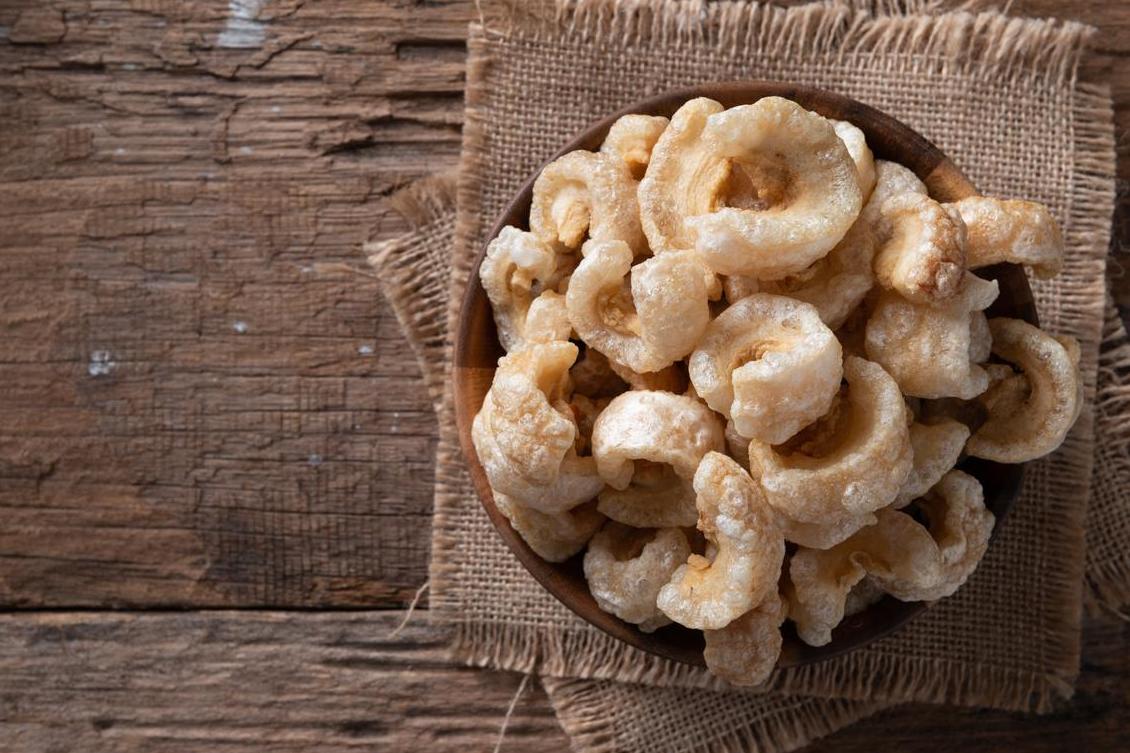Mr Trotters admits to using foreign pigs, despite branding itself as 'Great British Pork Crackling'
The packets feature an illustration of a pig wearing a Union Jack waistcoat

A “Great British” pork scratchings brand has faced criticism after admitting to using foreign pork.
Mr Trotter’s was founded in 2011 by Prince Charles’ stepson Tom Parker Bowles alongside food writer Matthew Fort, and beer industry expert and farmer Rupert Ponsonby.
At the time, Parker Bowles said he had been “incensed” to discover that most pork scratchings sold in pubs came from Danish pigs and so went on to create a snack made using the rinds of British bred pigs alone.
Since then, Mr Trotter's has been branded with an illustration of a hog wearing a Union Jack waistcoat and is now sold in the likes of Selfridges, Fortnum & Mason, and John Lewis.
Despite pledging to only use British pigs to make the snack, Karyn Walker, director of Mr Trotter’s has revealed that the brand’s pork scratchings are now made using rind bought from the global meat processing company Danish Crown, which sources its off-cuts from German and Dutch sellers.
“We used to make it from British pigs purely, but the supply of that has deteriorated and the demand for our product increased,” she told The Times.
“So we experimented with the product and we had to add to it by getting other pigs from other countries so it’s a European pig rather than just a British pig.”
Walker added that Mr Trotter’s still uses the phrase “Great British Pork Crackling” on its packaging because the scratchings are still cooked and seasoned in Britain.
“It becomes British,” she said.
“I suppose it’s like if you’re born in India because you are on holiday there it doesn’t make you an Indian.”
In a statement posted on Twitter, Parker Bowles clarified that he and Fort stepped down from the board as soon as the company stopped solely using British pigs.
“Just to be clear. @matthewfort and me stepped down from the board of Mr Trotters early last year because we could no longer guarantee a regular supply of British outdoor bred pork rinds,” he wrote.
“It was an amicable decision. But since then, we have had no part in running the company.”
Mr Trotter’s was found to be using foreign pigs as a result of the Happerley food transparency scheme, an initiative by Mid Counties Co-op which helps consumers find out more about where their food comes from.
The brand has since received criticism from fans on social media, with one person calling for more honest food labelling.
“Mr Trotter, Great British Pork Crackling” made from rind imported from Denmark, from Danish, German and Dutch pigs,” they wrote on Twitter.
“What’s the term, ‘economical with the truth?’ How about fair and honest food labelling?”
The Independent has contacted Mr Trotter’s for comment.
Join our commenting forum
Join thought-provoking conversations, follow other Independent readers and see their replies
Comments
Bookmark popover
Removed from bookmarks